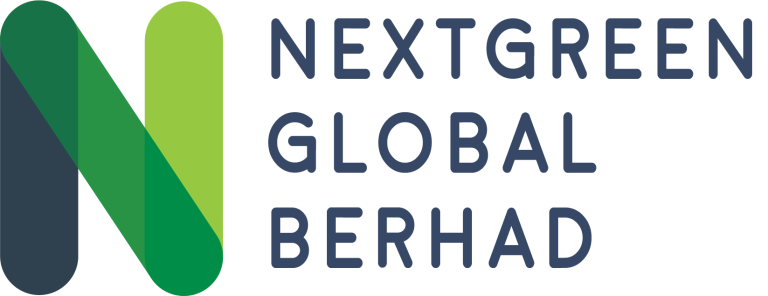

Stakeholders Engagement
Nextgreen engages with a broad range of stakeholders who are connected to or influenced by our business operations. Our ability to execute our sustainability efforts in a purposeful way requires input from our diverse set of external and internal stakeholders. Inputs from these active and regular engagements helps us shape, advance and implement our sustainability strategy and is reflected in how we are striving to build a more resilient future.
Find out more about how we engage with our stakeholders and their key concerns.
Stakeholder Groups:
Academic associations and research institutions
Why We Engage:
We collaborate with academic associations and research institutions to bring about purposeful change and sustainable solutions. We are involved collaboratively in developing and sharing industry best practices related to advancing the non-wood pulp and paper industry, zero waste and circular economy.
How We Engage And Frequency:
- Knowledge transfer
- Memorandum of understanding (MoU)/Memorandum of agreement (MoA)
- Ongoing career fairs
- Ongoing research and development collaborations
Topics Important To Stakeholder Group
- Creating talent pipeline
- Educational site visit and industry sharing
- On-the-job training programmes
- Product innovation
- Research grants and collaboration projects
Stakeholder Groups:
Customers
Why We Engage:
We engage with our customers to understand their requirements, demands and anticipate market trends. Our engagement helps us to prioritise long-term success for our business and our customers by providing an opportunity to develop innovative solutions, build strong relationships and help them achieve their own objectives.
How We Engage And Frequency:
- Company website and social media
- Customer satisfaction platforms i.e. emails, phone calls, surveys, visits
- Letter of intent (LoI)
- Ongoing dialogue, negotiations and account management
- Periodic trade fairs
Topics Important To Stakeholder Group
- Carbon footprint
- Consistent supply of products and quality
- Product pricing
- Public awareness on sustainable products, empty fruit bunches (EFB), pulp and paper products using EFB as a raw material
Stakeholder Groups:
Employees
Why We Engage:
By engaging with our employees and creating positive experiences for them, we shape our culture and live our values. We foster open dialogue to provide an opportunity to identify and resolve challenges together, as well as identify and support development initiatives so that our employees are empowered to drive our business forward. A strong and integrated sustainable company can attract and retain the necessary skills.
How We Engage And Frequency:
- Bi-annual performance management system reviews
- Bulletin boards
- Employee/safety handbook
- Periodic trainings and workshops
- Supervisory and toolbox meetings
- Workplace meetings
Topics Important To Stakeholder Group
|
Stakeholder Groups:
Government (national and local), regulatory bodies and industrial associations
Why We Engage:
We ensure compliance with legal and government requirements as well as established responsible business conduct. We engage with national and local governments, regulators and industrial associations to share our intentions, understand their concerns and priorities, and find mutually beneficial solutions.
How We Engage And Frequency:
- Association web portal
- Company representation at industrial association initiatives
- Multi-stakeholder collaborations and partnerships
- Periodic seminars and forums
- Presentations and submissions to government
- Progress update meetings
- Site visits
Topics Important To Stakeholder Group
|
Stakeholder Groups:
Local communities and nongovernmental organisations (NGOs)
Why We Engage:
Our businesses are more likely to succeed when they are part of healthy, prosperous and dynamic communities. Ongoing and transparent dialogue with local communities enables us to collaboratively address challenges, understand and manage risks, generate employment and business opportunities, improve performance and build trust.
How We Engage And Frequency
- Ongoing dialogue meetings
- Sponsorship and local community projects
- Village visits
Topics Important To Stakeholder Group
- Indigenous people (Orang Asli)
- Social investment programmes e.g. job opportunities, contributions to local causes
- Tree planting
Stakeholder Groups:
Shareholders, investors and bankers
Why We Engage:
We engage with our shareholders and investors to provide them with insights about the company. This allows them to make informed investment decisions. Our engagement with financial institutions provide us access to wider financing options
How We Engage And Frequency
- Ad-hoc meetings to structure schemes and negotiate financing proposals
- Annual General Meeting (AGM)
- Annual and quarterly reports
- Circular to shareholders
- Company announcements
- Company website
- Extraordinary General Meeting(EGM)
Topics Important To Stakeholder Group
- Capital requirement
- Dividend proposal
- Financial position and performance
- Financial projection
- Financial collaterals
- Past financial results
- Short-term and long-term strategies
Stakeholder Groups:
Suppliers and sub-contractors
Why We Engage:
Our suppliers and contractors provide us with business-critical products and services that enable us to drive our business strategy. We prioritise purchasing products and services from local suppliers. We work in partnerships to deliver best value for our operations as well as develop their capabilities and capacity.
How We Engage And Frequency
- Annual supplier performance assessment
- Engagement via email or phone call
- Request for tenders and procurements
- Supervisory and toolbox meetings
- Weekly or monthly follow-up meetings
Topics Important To Stakeholder Group
- Availability of construction materials supply and on-time delivery
- Raw materials demand
- Securing future construction works in Green Technology Park (GTP), Pekan
- Use of local suppliers
